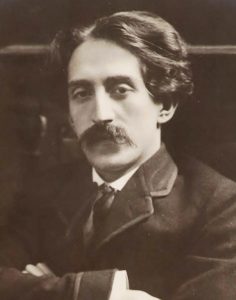Alexander Krein (1883–1951)

Alexander Krein, who spent his childhood playing Klezmer music in his father’s orchestra, joined the cello class at the Moscow Conservatory when he was only thirteen. He later studied music theory and composition under the guidance of composers Sergey Taneyev and Boleslav Yavorsky.
The first of two sets composed in 1914, The Three Sketches on Hebrew Themes for Clarinet Quintet, Op. 12, demonstrates Alexander Krein’s objective to incorporate Jewish folk melodies within a formal chamber music framework. This three-movement work begins with a Lento marked by an elegiac quality and utilizing familiar, perhaps stereotypical, Hebraic material. The notably impressive second movement, Andante, commences with the cello, followed by the clarinet, playing over string tremolos before a distinct klezmer melody emerges. The final movement, Allegro moderato, opens with a restless, dance-like theme reminiscent of Fiddler on the Roof, initially stated by the first violin and then the clarinet. Krein skillfully avoids cliché by introducing a warm cello countermelody and concluding with an exciting coda.
Krein’s music blends late-Romantic expressivity with echoes of Eastern European Jewish folk traditions. His Clarinet Quintet is richly lyrical and rhythmically vibrant, capturing both nostalgic longing and a restless modern energy.